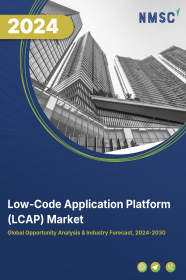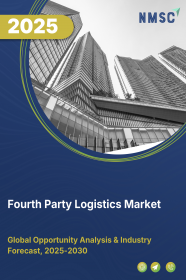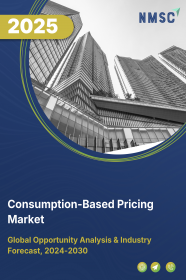
Low-Code Application Platform (LCAP) Market by Component (Platform, Services, And Support), by Deployment (Cloud-based, On-Premises, and Hybrid), by Organization Size (SMEs and Large Organizations), by Application (Custom Business Applications, Process Automation, Mobile Applications, and Enterprise Application Integration) and by Industry Vertical (Healthcare, Retail, Finance, Manufacturing, and Government)- Global Opportunity Analysis and Industry Forecast 2024-2030
US Tariff Impact on Low-Code Application Platform (LCAP) Market
Trump Tariffs Are Reshaping Global Business
Market Definition
The LCAP Market size was valued at USD 24.32 billion in 2023 and is predicted to reach USD 117.49 billion by 2030 with a CAGR of 25.2% from 2024-2030.
A low-code application platform (LCAP) is a type of software development platform that enables users to create, deploy and manage business applications with minimal or no coding. This is done through a visual, drag-and-drop interface, which allows users to create applications using pre-built templates, connectors, and other pre-built building blocks.
These platforms are designed to abstract away the complexities of traditional software development, allowing business analysts, data scientists, and other non-developers to build and deploy sophisticated applications quickly and easily. Low-code application platforms are widely used for creating custom business applications, automating business processes, and creating mobile applications.
Market Dynamics and Trends
The demand for LCAP market is growing due to the increasing need for faster and more efficient software development processes. Low-code platforms allow for the rapid development of custom applications by providing a user-friendly interface and pre-built templates, which reduces the need for extensive coding knowledge. Additionally, the growing trend of digital transformation has led to an increase in the need for business automation and process improvement, which in turn boosts the growth of the market.
Furthermore, the increasing need for rapid customization and scalability is significantly fuelling the growth of the low code application platform market. Low code application platforms provide a visual, drag-and-drop interface that enables non-technical users to create custom applications without writing complex code. This makes it easier for businesses to quickly create and modify applications to meet their specific needs, without the need for a dedicated development team.
However, the complexity and limited scalability of applications developed using low-code application platforms may restrain the growth of the market. While low-code platforms are well-suited for rapid development of simple applications, they may not be able to handle the complexity and scalability requirements of more advanced and enterprise-level applications.
On the other hand, the integration of blockchain technology with LCAP provides support to create new generation of decentralized applications (dApps) to businesses that are highly resistant to fraud, hacking, and cyberattacks, which may create ample growth opportunities for the market in the future.
Market Segmentation and Scope of Study
The global LCAP market is segmented on the basis of component, deployment, organization size, application, industry vertical, and geography. Based on component, the market is classified platform, services, and support. Based on the deployment, the market is segmented into cloud-based, on-premises, and hybrid. On the basis of organization size, the market is categorized into SMEs and large organizations. On the basis of application, the market is categorized into custom business applications, process automation, mobile applications, and enterprise application integration. On the basis of industry vertical the market is segmented into healthcare, retail, finance, manufacturing, and government. Geographical breakdown and analysis of each of the aforesaid classifications include regions comprising of North America, Europe, Asia-Pacific, and RoW.
Geographical Analysis
North America dominates the global LCAP market and is potently expected to remain dominant in the market throughout the forecast period. This is attributed to the developing healthcare industry in the region as, these platforms provide support to create and manage various types of applications, such as electronic health records (EHRs), appointment scheduling systems, patient portals, and medical billing systems.
Moreover, the presence of major market players that are adopting various strategies including product launches is further accelerating the growth of the LCAP market. For instance, in January 2021, Oracle Corporation launched APEX low-code development platform as a managed service, touting it as a high-functioning, lower-cost alternative to other low-code tools. The launch aims to attract a new class of developers who are not as sophisticated as professional coders.
On the other hand, Asia Pacific shows substantial growth in the global LCAP market owing to the rapidly increasing adoption of digital technologies along with the shortage of skilled developers. Businesses in the Asia Pacific region, particularly in developing economies, are keen to adopt digital technologies to improve their competitiveness and efficiency. Low-code platforms provide an attractive solution for these businesses as they allow for rapid application development without the need for extensive programming knowledge.
Also, the increasing incorporation of low-code platforms in the region, especially in China is further driving the growth of the market. Several local vendors in all major verticals are using these platforms to accelerate application delivery, expand developer taskforces, lower operating costs, and increase innovation.
Competitive Landscape
Various market players operating in the LCAP market market include Appian Corporation, Creatio, LANSA, Mendix Technology BV, Microsoft Corporation, Oracle Corporation, OutSystems, Pegasystems Inc., QuickBase and Salesforce, Inc. These market players are adopting various strategies such as product launches to maintain their dominance in the global bioprocessing market.
For instance, in December 2022, Creatio, launched 8.0.6. version of Creatio’s platform, which includes updated composable architecture that enables organizations to create apps faster than ever before. It also offers an updated Freedom UI and intelligent AI-driven recommendations engine for workflow design and automation.
Also, in May 2022, Microsoft launched brand-new low-code development platform called Power Pages to easily build websites and web apps without the need for developers. This platform allows businesses to build apps without an extensive understanding of software development.
Moreover, in May 2021, Appian launched enhanced artificial intelligence-powered document processing and developer collaboration tools in the latest version of its Appian Low-code Automation Platform.
Key Benefits
-
The LCAP market report provides the quantitative analysis of the current market and estimations through 2024-2030 that assists in identifying the prevailing market opportunities to capitalize on.
-
The study comprises a deep dive analysis of the LCAP market trend including the current and future trends for depicting the prevalent investment pockets in the market.
-
The information related to key drivers, restraints and opportunities and their impact on the LCAP market is provided in the report.
-
The competitive analysis of the market players along with their market share in the LCAP market
-
The SWOT analysis and Porters Five Forces model is elaborated in the study.
-
Value chain analysis in the market study provides a clear picture of the stakeholders’ roles.
Key Market Segments
By Component
-
Platform
-
Services
-
Support
By Deployment
-
Cloud-based
-
On-Premises
-
Hybrid
By Organization Size
-
SMEs
-
Large Organizations
By Application
-
Custom Business Applications
-
Process Automation
-
Mobile Applications
-
Enterprise Application Integration
By Industry Vertical
-
Healthcare
-
Retail
-
Finance
-
Manufacturing
-
Government
By Region
-
North America
-
The U.S.
-
Canada
-
Mexico
-
-
Europe
-
The UK
-
Germany
-
France
-
Italy
-
Spain
-
Denmark
-
Netherlands
-
Finland
-
Sweden
-
Norway
-
Russia
-
Rest of Europe
-
-
Asia-Pacific
-
China
-
Japan
-
India
-
South Korea
-
Australia
-
Indonesia
-
Singapore
-
Taiwan
-
Thailand
-
Rest of Asia Pacific
-
-
RoW
-
Latin America
-
Middle East
-
Africa
-
REPORT SCOPE AND SEGMENTATION:
|
Parameters |
Details |
|
Market Size in 2023 |
USD 24.32 billion |
|
Revenue Forecast in 2030 |
USD 117.49 billion |
|
Growth Rate |
CAGR of 25.2% from 2024 to 2030 |
|
Analysis Period |
2023–2030 |
|
Base Year Considered |
2023 |
|
Forecast Period |
2024–2030 |
|
Market Size Estimation |
Billion (USD) |
|
Growth Factors |
|
|
Countries Covered |
28 |
|
Companies Profiled |
10 |
|
Market Share |
Available for 10 companies |
|
Customization Scope |
Free customization (equivalent to up to 80 working hours of analysts) after purchase. Addition or alteration to country, regional, and segment scope. |
|
Pricing and Purchase Options |
Avail customized purchase options to meet your exact research needs. |
KEY PLAYERS
-
Appian Corporation
-
Creatio
-
LANSA
-
Mendix Technology BV
-
Microsoft Corporation
-
Oracle Corporation
-
OutSystems
-
Pegasystems Inc.
-
QuickBase
-
Salesforce, Inc.

















 Speak to Our Analyst
Speak to Our Analyst




















